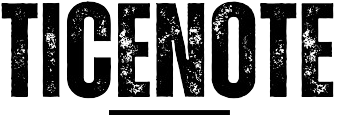A version of this article was originally published on NeurologyLive. This version has been slightly edited.
In a recently published prospective observational study, the use of cannabidiol (CBD; Epidiolex; Genentech) as an adjuvant treatment was effective, safe, and associated with significant improvements in quality of life in adults with drug-resistant focal epilepsy. Improvements in quality of life were not all associated with a reduction in seizure frequency, as some authors found that this could be explained by high tolerance.
CBD, an anticonvulsant (ASM) approved for rare epilepsies such as Dravet syndrome, Lennox-Gastaut syndrome (LGS), and tuberous sclerosis complex (TSC), was evaluated in a cohort of 44 adults with drug-resistant focal epilepsy who completed six months’ trial. A total of 86% (n = 38) of the sample were considered responders, including 2 (5%) patients who were seizure-free, 14 (32%) patients with an 80% to 99% seizure reduction, and 22 (50%) who decreased by 50–79%.
“Our results in terms of efficacy and seizure-freeness are similar to those reported by other pediatric and adolescent research groups,” the study authors wrote. “Based on these reports, seizure-free rates are similar in adults and children.
Silvia Kochen, MD, director of research and medical director of the Epilepsy Center at El Cruce Hospital in the Department of Neurosciences, said in a study involving patients aged 18 to 60 who were not candidates for epilepsy surgery. Those with diseases such as LGS or epileptic encephalopathy, as well as status epilepticus, were excluded from the study. The mean duration of epilepsy was 21 years (SD, 14), with a mean of 3 (SD, 0.8) ASMs in patients receiving adjuvant therapy.
Of the 5 patients who were considered unresponsive, 1 had an increase in seizure frequency even at 500 mg/day. The patient presented with intact epilepsy with right temporal EZ defined by stereoelectroencephalography and is currently treated with lamotrigine and valproic acid. There were no significant differences between responders and nonresponders for baseline and end-of-study dose, baseline seizure number, duration of epilepsy, age, vagus nerve stimulation, surgery, or MRI lesion.
Among respondents, the final CBD dose averaged 329 mg/day. Twenty patients (53%) completed the study with 250 mg/day of CBD, 12 patients (32%) with 375 mg/day, and 6 patients (16%) with 500 mg/day. Adverse events (AEs), which were mild, occurred in 29 patients (66%). Of those who reported AEs, 60% were gastrointestinal. Of note, three patients developed severe diarrhea that required the discontinuation of CBD treatment. Another 16% and 14% of patients reported drowsiness and decreased appetite, respectively.
After 6 months of treatment, patients’ quality of life improved significantly, as assessed by the QOLIE 10 questionnaire. Specifically, 31 patients (70.4%) improved, 10 patients (22.7%) worsened, and 3 (6.8%) were unchanged. Improvement was found to be independent of a reduction or worsening of seizure frequency.
There were no significant differences between the efficacy of CBD and its relationship to seizure type, except that 23 patients (52%) had focal seizures at baseline that progressed to bilateral seizures. After 6 months of CBD treatment, 13 patients (29%) stopped having focal seizures that progressed to bilateral.
